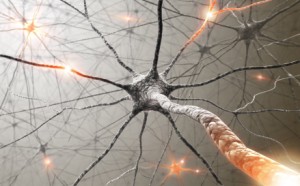 Every now and then a patient will come in complaining of mysterious pains, and sometimes numbness, that seem to be unrelated to exercise, injury, medications (blood pressure, cholesterol), or prolonged cramped sleep positions, etc. I tell these patients who have these complaints that their quirky pains just might be caused by something they haven’t considered…a food allergy. Something they’re eating, or drinking, may be causing their nerves to become irritated and send out pain responses! Here’s what I tell my patients about food allergy substances you may be ingesting every day that can be causing your nerve pain.
Every now and then a patient will come in complaining of mysterious pains, and sometimes numbness, that seem to be unrelated to exercise, injury, medications (blood pressure, cholesterol), or prolonged cramped sleep positions, etc. I tell these patients who have these complaints that their quirky pains just might be caused by something they haven’t considered…a food allergy. Something they’re eating, or drinking, may be causing their nerves to become irritated and send out pain responses! Here’s what I tell my patients about food allergy substances you may be ingesting every day that can be causing your nerve pain.
Nerve Pain Symptoms and Food Allergy
Nerve pain, or neuropathy, is a fairly common complaint in Americans. In fact, it affects over 20 million Americans, most of them over the age of 40. However, neuropathy can occur at any age. People with diabetes, both type 1 and type 2, are more predisposed to it than non-diabetic people.
Basically, neuropathy is caused as a result of decreased blood supply to the nerves which diminishes their blood supply. Decreased blood supply can occur from a variety of things including vascular obstructions, inflammation, repeated injury, toxins (cleaning agents, environmental toxins), nutritional deficiencies, prescription drugs to name a few. Neuropathy symptoms can include the following:
- Burning, tingling, itching, crawling sensations in the bottoms of feet, hands, around the lips, ears.
- Numbness in feet, hands/fingertips, lips, ears, tip of nose, other parts of the body.
Traditional medical treatment of neuropathy is mainly symptomatic, perhaps prescribing muscle relaxants, antidepressants, tranquilizers, and even anti-seizure drugs. Alternatively, a natural approach is to supplement magnesium, which helps reduce inflammation, and potassium which helps nerves fire better, affording some relief.
More and more, neurologic researchers are finding that food allergy, or intolerance to certain chemicals in the food and drinks we consume, namely aspartic acid and glutamic acid, can be the more common culprits causing neuropathy in so many people.
Back around the mid 1980’s, the sweetener aspartame (brand name Equal) started being used as a sugar alternative in soft drinks. Today, we find aspartame in many products, including fruit juices, many dietetic/diabetic foods and even sports drinks. People who consume several aspartame-sweetened soft drinks per day frequently complain of neuropathy-type pain in hands, legs, feet, tinnitus (ear ringing) and migraine headaches. Aspartame, or aspartic acid, is highly toxic to the nerves. It metabolizes in the human body as wood alcohol. Stopping consumption of aspartame containing drinks, or foods, can stop symptoms completely.
Some other common agents present in food we eat thought responsible for food allergy neuropathy include:
- MSG, a seasoning frequently used in Chinese cooking.
- Gluten found in bread and baked goods containing wheat.
- Fruit. Most often, it is the chemical pesticides still present on the skins.
- Food color dyes. In the past red food color dye was found responsible for a lot of symptoms in children including ADHD. Most food colors are safe, however.
- Herbs. If you have grass and plant allergies, you may also have herbal allergies.
Is It Food Allergy?
The first thing I do with my patients when I suspect their neuropathy pains might be caused by a food allergy is to refer them to an Allergy and Immunology physician. Complete food allergy testing can be done by a RAST test (looks for specific IgE antibodies that herald allergy) and treatment usually consists of eliminating possible “trigger” foods for a few weeks to see if symptoms improve.
If your symptoms seem milder, and more chronic than arising quickly, here are a few things you can do to help yourself:
- Stop consuming aspartame. Read labels. Aspartame-containing products carry a warning aimed at people with “phenylketonuria”, who cannot process aspartame.
- Omit MSG from your diet. Ask your Chinese restaurant to please omit the MSG. Look for “glutamic acid” or “monosodium glutamate” on labels which are MSG.
- Wash fruits and vegetables thoroughly. The chemical pesticides that are used to commercially grow produce are neurotoxins. Traces of them can still be on the skins of the produce. Buy a good produce wash and soak/scrub the skins with a vegetable brush.
- Avoid food dyes. Many processed, “boxed” foods contain food dyes. Eliminate these foods/chemicals from your diet.
- Herbs. As stated above, herbal allergies can also be part of environmental allergies. Omit them until you can rule them out.
- Gluten. Many people have gluten sensitivities that range from bloat to pain to diarrhea, etc. Omit wheat products from your diet to see if your symptoms improve.
Neuropathic pain can just be one chronic symptom of something you are eating and reacting to and may worsen in its symptoms or areas of your body where it is present. Cutting out common nerve-damaging triggers like aspartame and MSG may alleviate your symptoms within a few days. If, however, your symptoms seem to be worsening, or you develop other more emergent symptoms like swelling, hives, shortness of breath, contact your doctor, or get to a hospital emergency department immediately.
Stay Well,
Mark Rosenberg, M.D.
Peripheral Neuropathy, http://www.webmd.com/brain/understanding-peripheral-neuropathy-basics
Can Food Allergy Cause Neuropathy? http://www.experts123.com/q/can-food-allergy-cause-neuropathy.html
Photo Credit: meridianclinics.com
